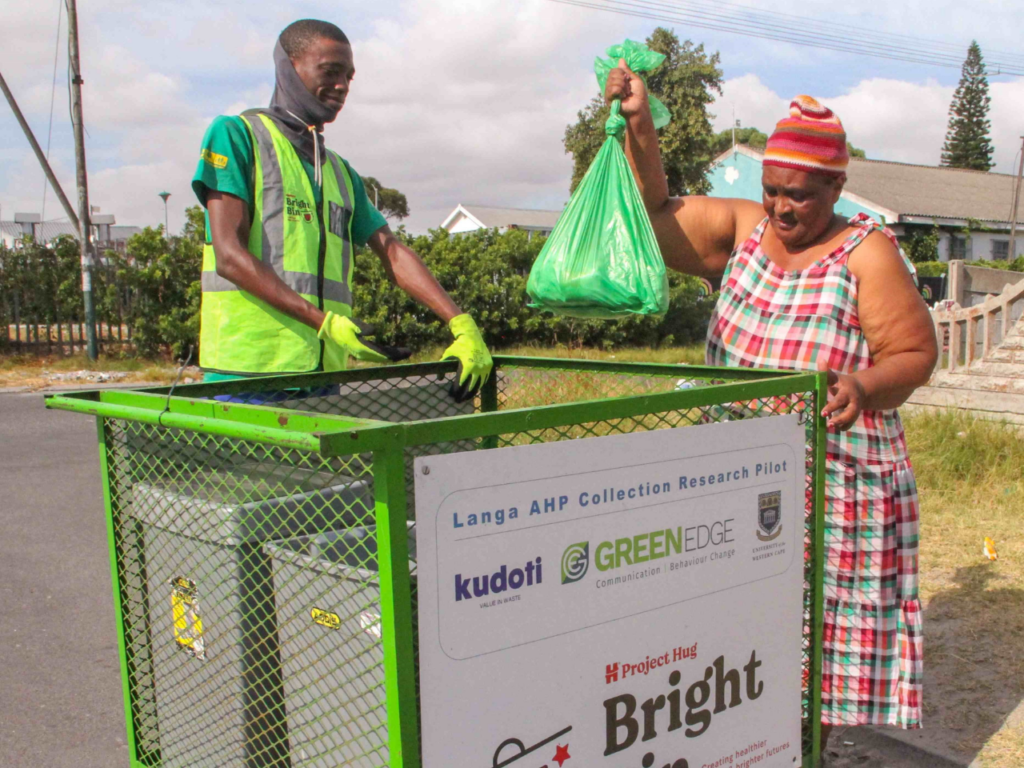Absorbent Health Products (AHP) such as diapers or nappies are classified as general waste in South Africa, so long as they don’t come from healthcare facilities. This means AHP waste can be co-mingled with household waste for municipal collection where these services regularly operate.
However, problems arise in townships, informal settlements and rural areas where municipal services are inadequate or non-existent. Here, disposable diapers by the thousand end up in open spaces and water courses, becoming a health risk to humans and nature.
Attention to public health
The Department of Forestry, Fisheries and the Environment’s draft AHP Waste management strategy is due out for public comment early this year. Adequate attention needs to be given to lower-income living areas as a matter of public health, as well as social justice. During the early rounds of the strategy’s stakeholder workshop process, large capital-intensive treatment technologies were among those proposed as solutions. For these plants to be economically viable, however, they would have to be placed where large volumes of AHP waste material are readily available for collection. This would be in the major metros – where the middle and upper-income residents regularly receive refuse removal.
A possible EPR, with targets
There is a strong possibility that the DFFE draft strategy recommends an Extended Product Responsibility (EPR) scheme for AHP waste management. This is welcome as AHP manufacturers can then, through a joint product Responsibility Organisation (PRO), share in the cost of end-of-use recovery and treatment of the material. An EPR scheme must set annual targets for the recovery of AHP waste. These targets should not only focus on amounts diverted from landfills but also on quantities recovered from underserved urban and rural areas with urgent human and environmental health issues.
Urban and rural research

Cart collectors make disposal of diapers safe and easy in Langa
Research pilots on the recovery of AHP waste in a number of lower-income sites have had successes. In Langa, Cape Town, a pilot showed that some 6000 diapers can be collected monthly from educare centres and households, for transport and sanitary disposal to landfills.

Implemented by GreenEdge, the project lessened the likelihood of diapers being discarded on open dump sites in the township and becoming a health risk. Useful data was also gathered for designing post-collection regenerative AHP waste treatment options, which are now being explored.
In the Joanna Road informal settlement near Durban, a pilot managed by Green Corridors placed special bins in convenient sites, making it easier for mothers to dispose of diapers, which are then taken to landfill by the municipality. Both these urban projects have been funded by Kimberly-Clark, manufacturers of the Huggies brand.
Useful precedents
In rural areas, the Kruger2Canyon Biosphere Reserve and the Endangered Wildlife Trust have done research to understand quantities, conditions and cultural aspects of disposable diaper waste practices in six villages in the Bushbuck Ridge region.

Hugh Tyrell, founder and director of GreenEdge
At Matatiele in rural Eastern Cape, a circular economy approach is underway where ‘smart’ modern cloth reusable nappies are being introduced to families. This project is managed by Environmental and Rural Solutions with WWF-SA, and funded by Nedbank’s GreenTrust. Much of the research work is being conducted in collaboration with UWC’s Professor Rinie Schenck, DSI/ NRF/ CSIR Chair in Waste and Society. The pilots and findings are setting practical precedents for AHP waste management under an EPR scheme in communities where it is needed most while creating employment as well. Overall, the results provide valuable learnings for evidence-based decision-making and strategic policy implementation. By Hugh Tyrell, founder and director of GreenEdge, a communications and behaviour change consultancy specialising in the circular economy.









